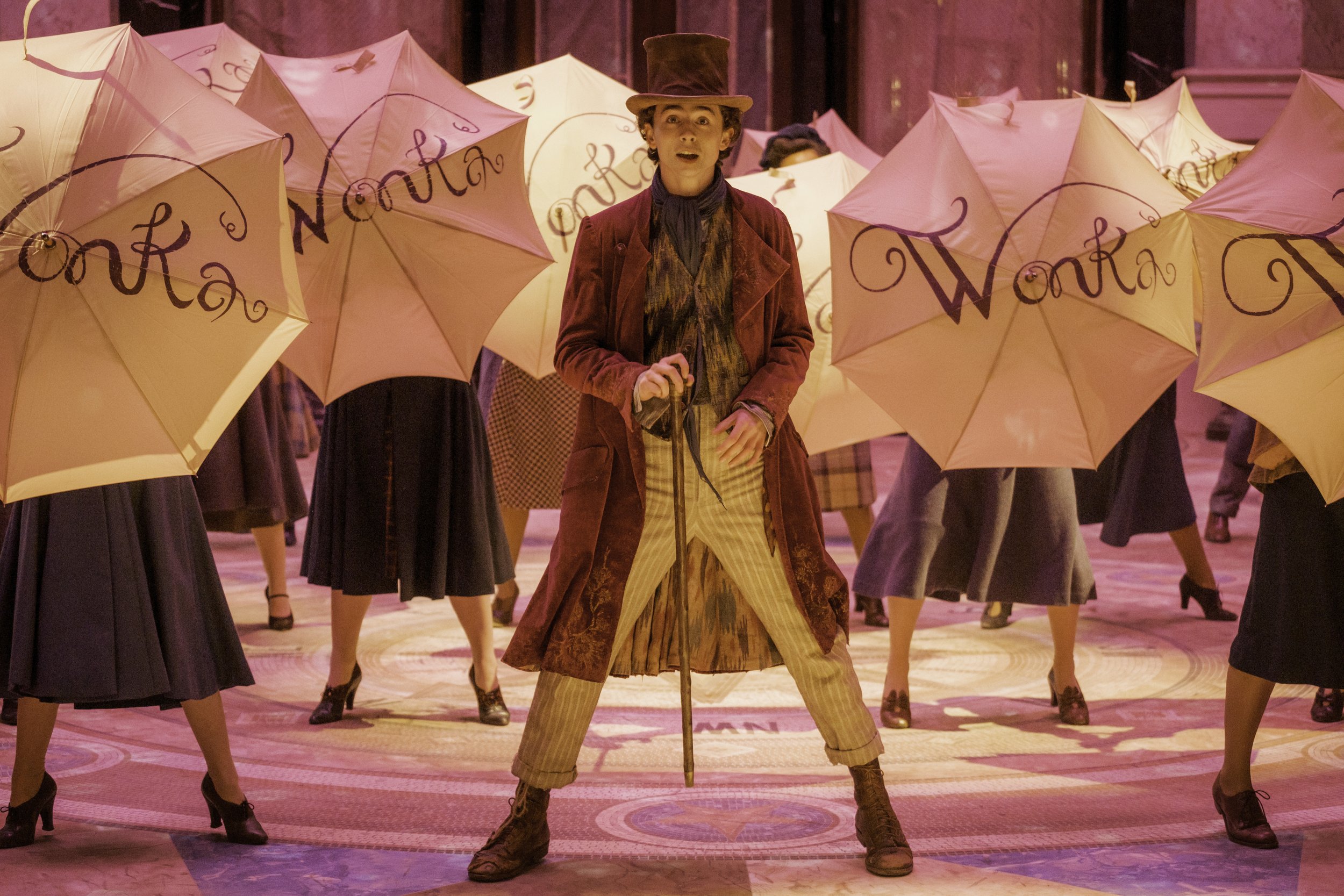Review: 'Wonka' captures a surprising amount of the magic of Gene Wilder's 'Willy Wonka and the Chocolate Factory'
Timothée Chalamet has a big top hat to fill in “Wonka,” an origin story for Roald Dahl’s enigmatic chocolate maker, in which the young star finds the balance between referencing back to the great Gene Wilder’s manic and yearning performance in the 1971 “Willy Wonka and the Chocolate Factory” and not copying the master too closely.
The movie’s real candy man — the one who mixes it with love and makes the world taste good — is director and screenwriter (with co-writer Simon Farnaby) Paul King, who captures the same smart humor and whimsical world-building he brought to the two “Paddington” movies.
We first see Chalamet’s Willy Wonka arriving by ship to the big city, after sailing the world perfecting his chocolate creations and ready to spend his 12 silver sovereigns establishing himself in the Galerie Gourmet, where all the great chocolatiers go to sell their wares. Alas, on his first night in the city, he is suckered in by two crooks, Mrs. Scrubitt (Olivia Colman) and Mr. Bleacher (Tom Davis), who get Willy to sign a contract for room and board without reading the fine print.
Soon Willy is stuck with a horrendous debt, which he must work off by washing clothes in Scrubitt & Bleacher’s laundry, along with some of their other victims — including an orphaned girl, named Noodle (Calah Lane), who has been trapped in the laundry since she was a baby.
Willy is convinced that his chocolate will make enough money to pay off not only his debts, but those of Noodle and the others serving in the laundry. Noodle helps him sneak out, so he can return to Galerie Gourmet. Once there, though, he discovers that the chocolate cartel – the big candy barons Slugworth (Paterson Joseph), Prodnose (Matt Lucas) and Fickelgruber (Mathew Baynton) — have a death grip on the market, and control the leading cleric, Father Julius (Rowan Atkinson), and the chocoholic chief of police (Keegan-Michael Key).
Adding to Willy’s problems is the little orange man who’s following him around and trying to steal his chocolates. He’s played, delightfully, by Hugh Grant — and anyone familiar with the Wilder movie knows not only what kind of creature he is, but what song he’s likely to sing.
Yes, there is singing here. “Wonka” is a full-throated musical, with songs written by Neil Hannon (the main creator for the Northern Ireland band The Divine Comedy). Chalamet’s songs are charming, and well-delivered, but the most catchy number comes when the greedy chocolate makers negotiate the price of their bribe to the police chief.
King is clearly inspired by the trippy visuals of Mel Stuart’s 1971 film, but he’s not hemmed in by them. His depiction of the young Wonka’s world is happily energetic, a confection worthy of its main character. He also brings a wry streak of absurd humor, as well as a lot of heart — as Willy thinks back to his mother (Sally Hawkins) and her lessons in the pleasures of chocolate making.
I’ve always thought “Willy Wonka and the Chocolate Factory” to be a one-off, a singular pop-art creation that — mainly because of Wilder’s deliriously insane performance — could never be duplicated. But King and Chalet, with “Wonka,” manage toevoke the same sense of playful wonder that its predecessor did. It indeed shines as a good deed in a weary world.
——
‘Wonka’
★★★1/2
Opens Friday, December 15, in theaters everywhere. Rated PG for some violence, mild language and thematic elements. Running time: 116 minutes.
